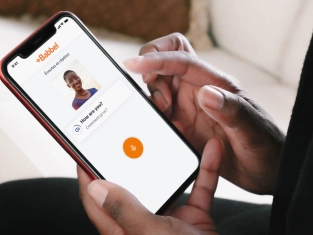by PushtoLearn
Drive Safe or Safely
Table of Contents
TLDR
"Safe" is what's called a "flat adverb" (the form is the same as the adjective). "Safely" is also an adverb form, so you can use either. Note there are other flat adverbs, such as "slow," "quick," "fast" (note that for the latter, there's no "-ly" form as well - "fastly" is not a word). Flat adverbs generally have a more informal tone so they're often used in speech and other informal contexts. In formal writing, you'd probably want to use the "-ly" form if there is one.
Drive Safe or Safely - Exercise and Quiz

The Difference Between "Safe" and "Safely"
-
Safe is an adjective. It describes a person or thing. For example, "The car is safe." It tells us the condition or state of something.
-
Safely is an adverb. It describes how an action is done. For example, "He drives safely." It tells us how someone does something.
The Rule: Adjectives vs. Adverbs
-
Adjectives describe nouns (people, places, or things).
-
Adverbs describe verbs (actions or how something is done).
When you are talking about how someone drives, you are describing the action of driving. So, the adverb "safely" should be used because it tells us how someone is driving.
Example:
-
Correct: "She drives safely."
-
Incorrect: "She drives safe."
Everyday Use: "Drive Safe" vs. "Drive Safely"
In everyday conversation, many people say, "Drive safe." Even though it’s grammatically incorrect, it’s very common, especially in informal speech. You’ll hear people say this as a short and friendly way to wish someone a safe journey.
However, if you want to be grammatically correct, especially in formal writing or speaking, you should say, "Drive safely."
Example:
-
Informal (common, but less correct): "Drive safe!"
-
Formal (correct grammar): "Drive safely!"
Common Errors
|
Common Error |
Correct Form |
Why? |
|
"He drives safe." |
"He drives safely." |
"Safely" is an adverb that describes the verb "drives." |
|
"Be safely!" |
"Be safe!" |
"Safe" is an adjective that describes the person’s state. |
|
"I hope you stay safely." |
"I hope you stay safe." |
We use "safe" to describe how someone is, not how they act. |
Everyday Examples
-
Correct (Formal): "Please drive safely on your way home."
-
Informal: "Drive safe! See you tomorrow."
-
Formal writing: "It is important to drive safely during bad weather."
-
Conversation: "Drive safe! Don’t forget to text me when you get there."
Why People Say "Drive Safe"
Even though "drive safe" is technically incorrect, it’s popular because it’s shorter and easier to say. In spoken English, especially casual situations, people often skip grammar rules for speed and simplicity. It’s similar to how people say "I’m good" instead of "I’m well." However, in formal or written English, it’s better to stick to "drive safely."
FAQ
Is "drive safe" incorrect?
Yes, "drive safe" is grammatically incorrect, but it is commonly used in casual speech.
Should I always say "drive safely"?
Yes, for formal or correct grammar, always say "drive safely."
Why do people say "drive safe" then?
People often shorten phrases in everyday conversation, and "drive safe" is faster and easier to say than "drive safely."
Can I use "safe" as an adverb?
No, "safe" is an adjective, so it can only describe nouns. The adverb form is "safely."
What is the correct way to wish someone a safe trip?
Formally, you should say, "Have a safe trip" or "Drive safely."

